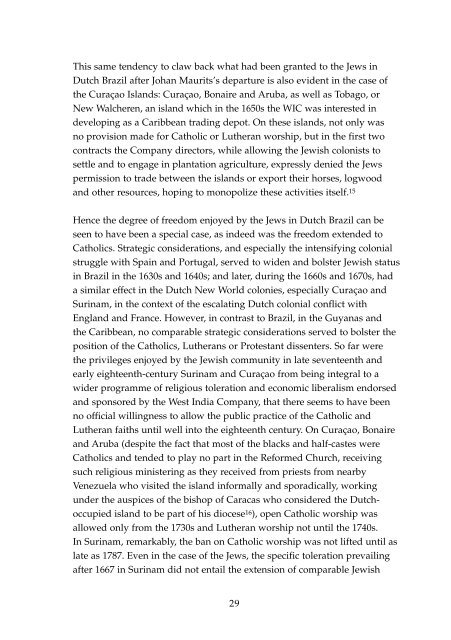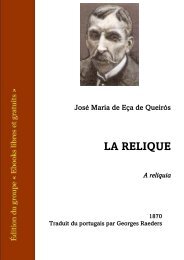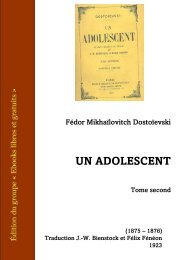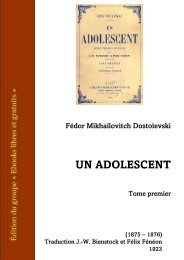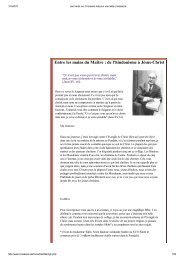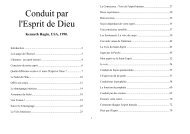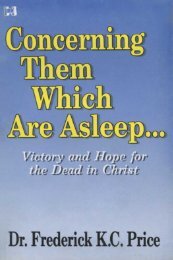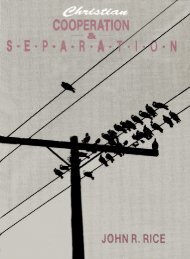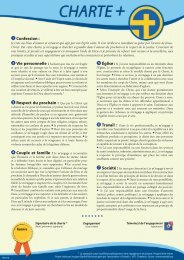The Expansion of tolerance
You also want an ePaper? Increase the reach of your titles
YUMPU automatically turns print PDFs into web optimized ePapers that Google loves.
This same tendency to claw back what had been granted to the Jews in<br />
Dutch Brazil after Johan Maurits’s departure is also evident in the case <strong>of</strong><br />
the Curaçao Islands: Curaçao, Bonaire and Aruba, as well as Tobago, or<br />
New Walcheren, an island which in the 1650s the WIC was interested in<br />
developing as a Caribbean trading depot. On these islands, not only was<br />
no provision made for Catholic or Lutheran worship, but in the first two<br />
contracts the Company directors, while allowing the Jewish colonists to<br />
settle and to engage in plantation agriculture, expressly denied the Jews<br />
permission to trade between the islands or export their horses, logwood<br />
and other resources, hoping to monopolize these activities itself. 15<br />
Hence the degree <strong>of</strong> freedom enjoyed by the Jews in Dutch Brazil can be<br />
seen to have been a special case, as indeed was the freedom extended to<br />
Catholics. Strategic considerations, and especially the intensifying colonial<br />
struggle with Spain and Portugal, served to widen and bolster Jewish status<br />
in Brazil in the 1630s and 1640s; and later, during the 1660s and 1670s, had<br />
a similar effect in the Dutch New World colonies, especially Curaçao and<br />
Surinam, in the context <strong>of</strong> the escalating Dutch colonial conflict with<br />
England and France. However, in contrast to Brazil, in the Guyanas and<br />
the Caribbean, no comparable strategic considerations served to bolster the<br />
position <strong>of</strong> the Catholics, Lutherans or Protestant dissenters. So far were<br />
the privileges enjoyed by the Jewish community in late seventeenth and<br />
early eighteenth-century Surinam and Curaçao from being integral to a<br />
wider programme <strong>of</strong> religious toleration and economic liberalism endorsed<br />
and sponsored by the West India Company, that there seems to have been<br />
no <strong>of</strong>ficial willingness to allow the public practice <strong>of</strong> the Catholic and<br />
Lutheran faiths until well into the eighteenth century. On Curaçao, Bonaire<br />
and Aruba (despite the fact that most <strong>of</strong> the blacks and half-castes were<br />
Catholics and tended to play no part in the Reformed Church, receiving<br />
such religious ministering as they received from priests from nearby<br />
Venezuela who visited the island informally and sporadically, working<br />
under the auspices <strong>of</strong> the bishop <strong>of</strong> Caracas who considered the Dutchoccupied<br />
island to be part <strong>of</strong> his diocese 16 ), open Catholic worship was<br />
allowed only from the 1730s and Lutheran worship not until the 1740s.<br />
In Surinam, remarkably, the ban on Catholic worship was not lifted until as<br />
late as 1787. Even in the case <strong>of</strong> the Jews, the specific toleration prevailing<br />
after 1667 in Surinam did not entail the extension <strong>of</strong> comparable Jewish<br />
29


